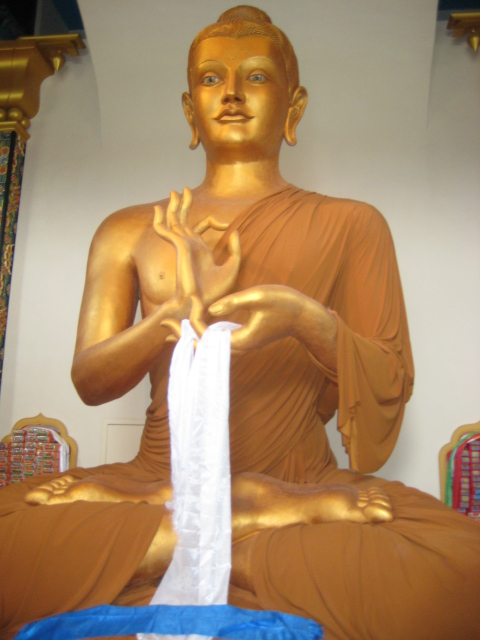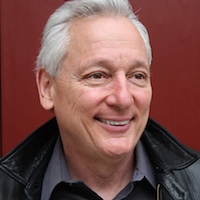This is part one in a six-part series in which Acharya Fleet Maull explores some major themes we all struggle with:
1. Virtue & Basic Goodness: The Lost Conversation.
2. The Human Condition and our Western Culture of Unworthiness.
3. Working with Fear and Vulnerability.
4. Fundamental Goodness vs. Fundamentalism.
5. The Neuroscience of Transcending Fear-Based Mind and Culture.
6. Awakening Through Service.

The words goodness and virtue may sound old-fashioned, or even pious and religious. Virtue or virtuous behavior could be described as behaviors, actions or non-actions, that bring about happiness for ourselves and others. Whereas, non-virtue would describe behaviors that produce suffering for ourselves and others.
Virtue is simply the kind of behavior that arises when we trust in our innate goodness and are not overcome, or overly influenced, by fear, doubt and unworthiness.
When we are in touch with our innate goodness and our confidence in that, we naturally act with kindness, mindfulness and precision. We have a sense of inner congruence and wholeness and our mind is not wavering. We have greater discernment about what we do and how we do what we do.
And since we are not caught up in the speed and aggression that arises from a sense of unworthiness and fear, we are naturally more compassionate and kind. Such virtuous behaviors have natural strength and momentum. They produce positive energy.
This is why, in Buddhism and other traditions, we have the notion of “merit,” or accumulated positive energy, which we dedicate to others, for the benefit of others, at the end of or our practices sessions.
Merit is basically the accumulated energy of virtue.
The Tibetan word for virtue is “gewa.” There’s also another Tibetan word, “dewa” which means bliss, or could be translated as happiness and well-being.
As you may have already guessed, there is a direct correlation between happiness and virtue. The underpinning of happiness and bliss is virtue—this is what creates positive momentum and inner happiness.
Most of us are familiar with the expression virtuous cycle that is related to things we are trying to accomplish—like meditation practice, diets or workouts. We try to establish a routine or positive habit and get a good momentum going.
At first we feel it, yet somehow we often start to lose track and find ourselves caught in an non-virtuous cycle, or what we sometimes call a vicious cycle. As we all know too well, once this happens, our momentum starts going backwards until it (hopefully) finally spins us into a place where we bottom out and get motivated to take action.
Reminded of our original inspiration and frustrated with poor results, we discover the motivation to once again take the actions needed to establish a virtuous cycle of the desired behaviors and results.
So this is a very common idea in the world, conventionally, with all of our human activities. However, when I refer to virtue here, I mean the behaviors that arise from a sense of inner congruence and wholeness, originating from our trust in our own innate goodness, and in the innate goodness of others.
Trusting in and developing unconditional confidence in this innate goodness creates a self-existing virtuous cycle that is much less vulnerable to the ups and downs of our conventionally motivated efforts to improve ourselves or create desired results of some kind.
So, this brings us to goodness. And what do we mean by goodness? We all know about the relative meaning of goodness (good vs. bad). But the goodness we are talking about here, in terms of basic goodness or unconditional goodness, is deeper and more profound than the relative sense of “good” that is juxtapositioned with “bad.”
Basically everything we experience, the good, bad and the ugly, arises out of the same ground of basic goodness, as either an expression of confidence in that ground or in fear of it.
There’s only one ground of being. There is no such thing as “good” people and “bad” people. The idea that some people are born with good genes or a good soul, and that other people are born bad is simply not true. There are no “border tribes” that are bad and evil that somehow snuck on our planet. What we call evil is simply the momentum of non-virtuous action that arises out of fear, which arises from a lack of familiarity with, and trust in, the ultimate ground of our being.
The ground of being for all beings, all of life, is fundamentally good and pure.
How could it be otherwise? It is life itself.
From the earliest historical times, human beings have been asking, “What is this all about and how did we get here?” This inquiry into the nature of and origins of reality and existence goes way back. We have continuously wondered:
“How did we get here, and why do we look the way we do? And why up versus down? And why are trees green instead of blue? And why do we have two eyes and two arms? Theoretically it could all manifest in a million different ways. So why, why are things the way they are, and where did this all come from? Where did this all start, and why did it start?”
As we know, there is a great diversity of philosophical and religious systems, indigenous stories and rituals, and all kinds of creation stories and narratives that have arisen in our attempts to understand all of this; but the idea that this whole thing, whatever it is and however it came into being, could somehow be a mistake, or that the whole thing is somehow fundamentally flawed, doesn’t even make sense.
Whatever this is, this thing we call reality or life, it is simply here…there isn’t another reality. Things are as they are. The idea that somehow this is all a big cosmic mistake…or that human beings are some kind of cosmic mistake or inherently flawed or unworthy doesn’t hold up to any kind of logical analysis. As well, it’s not really our felt experience at the deepest level. Yet, we have a couple of challenges that tend to lead us in that direction of feeling unworthy.
What, you might wonder, leads us to distrust, if not our own, then the basic or innate goodness of others? Why do we doubt ourselves, each other and our society so deeply? What is it in our Western culture that causes us to feel bad about ourselves, that creates this shared ceremony of unworthiness?
As you can see, I’m just starting to poke around a little with these themes. There is a lot to explore here. So, please, take some time this week to reflect on what you think I may be getting at and join the beginning stages of a much deeper conversation with yourself.
Please, feel free to answer those questions above in the comment section below (I’ll be reading and commenting back) and please share whatever may be arising for you in relation to the ideas and questions I’m raising here. Finally, please join us next week for Part Two (in this six-part series), as we dig even deeper and start to explore the Human Condition and Our Western Culture of Unworthiness.
Love elephant and want to go steady?
Sign up for our (curated) daily and weekly newsletters!
~
~
Author: Fleet Maull
Editor: Travis May
Photos: Used with permission by Cody Lee Hanson, Stupa Buddha by Travis May

 Share on bsky
Share on bsky







Read 11 comments and reply